Settle in, Mother Scratchers! We’re going back to the salad days of Joel and Ethan Coen‘s fabled partnership for the duo’s unconventional comedy about an unlikely courtship, unwanted house guests, a cigar-chomping pale rider, the best deals on furniture in the Southwestern portion of the United States, and baby stealing! Slap your ass, and don’t forget the Huggies because we’re revisiting the Coen Brothers’ 1987 crime comedy Raising Arizona.
The dynamic duo of Joel and Ethan Coen made the Hollywood scene in 1984 with the neo-noir crime drama Blood Simple. Featuring John Getz, Francis McDormand, and Dan Hedaya, Blood Simple helped define the brothers as a creative team to watch, with critics taking a shine to the thriller’s harsh Texas setting, twisting plot, and hypnotic characters. Not all filmmakers come out of the gate swinging, but the Coens delivered a haymaker for film buffs craving something dark, mysterious, and deadly.
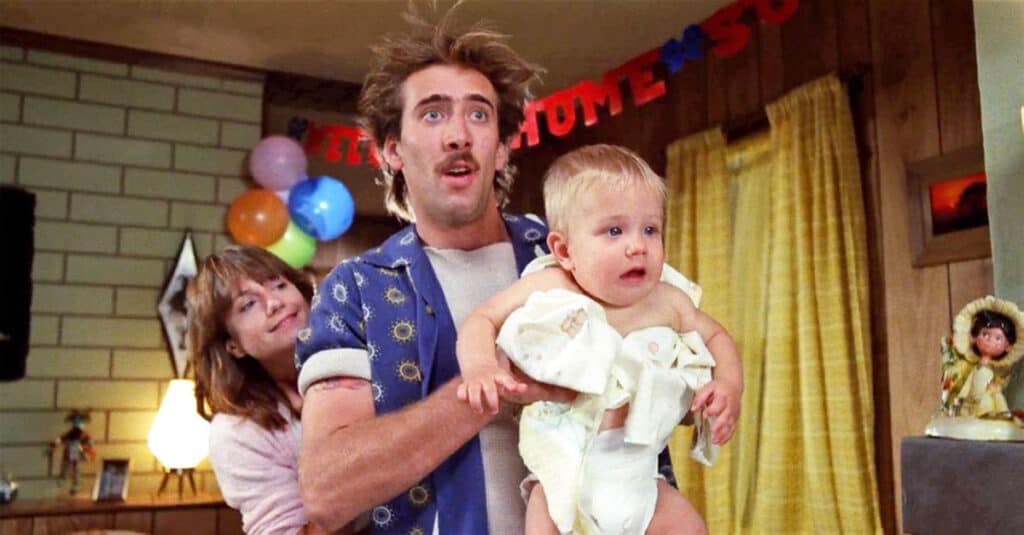
Those who enjoyed Blood Simple could not wait to see what the brothers would do next. Still, rather than paint themselves as one-trick ponies, the Coens decided to go in a different direction for their sophomore film. This choice confounded some critics but intrigued audiences who craved something unorthodox and unexpected. The Coens wanted to surprise people by abandoning their investigation into the dealings of dark and disturbing individuals by introducing upbeat characters, slapstick, and playful dialogue through a madcap comedy. Thus, plans to put Raising Arizona into production began, leading the Coens down a rocky road of personality clashes and ire from angry Arizonans.
Okay, then. Let’s catch you up with what Raising Arizona is all about. The film focuses on the questionable courtship of Nicolas Cage as H.I. “Hi” McDunnough, an ex-convict labeled a repeat offender by the state of Arizona, and Holly Hunter as Edwina “Ed” McDunnough, a police officer who takes a shine to Hi’s Southern charm. Hi and Edwina tie the knot after years of revolving-door incarceration, mugshot photography flirtation, and well-intentioned advances. Their honeymoon period is short-lived once Edwina’s biological clock starts ticking, and the couple decides to have a baby.
Sadly, Edwina’s womb is a place where Hi’s seed can find no purchase, and adoption agencies aren’t keen on helping because of Hi’s checkered past. Desperate to expand their family unit, the McDunnoughs learn about a quintuplet of infants dubbed the “Arizona Quints,” born to the regionally famous furniture magnate Nathan Arizona, played by Trey Wilson, and his doting wife, Florence, played by Lynne Kitei.
Figuring the Arizona couple has more than they can handle with five mouths to feed, Hi and Edwina steal a child they believe is Nathan Jr. Devastated by the home invasion and loss of their child, the Arizonas launch an investigation into the theft. However, when local law enforcement proves themselves useless, Nathan Arizona hires Leonard Smalls, a grizzled bounty hunter with a mysterious aura bordering on the verge of supernatural.
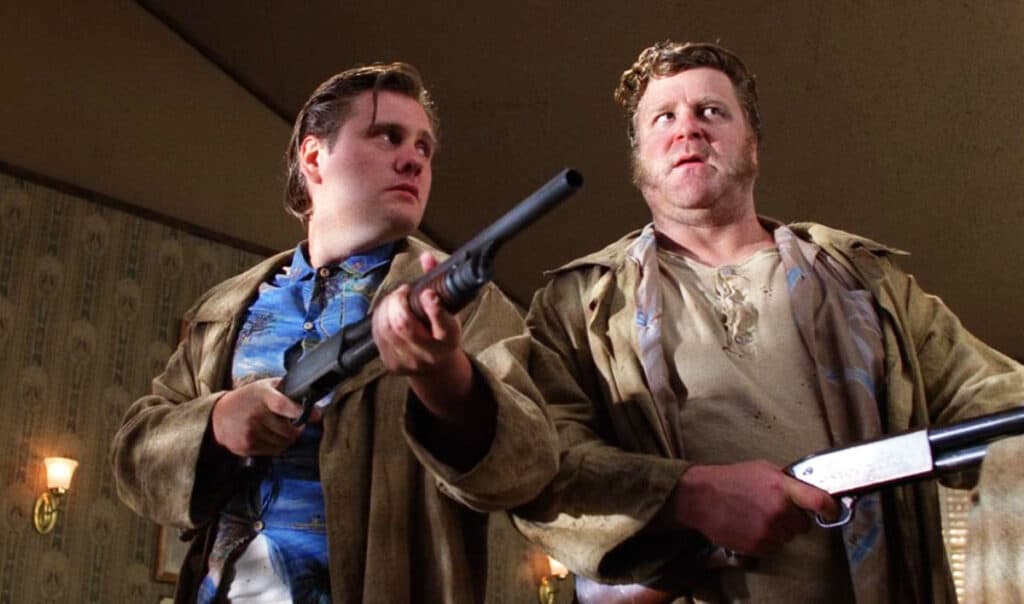
At the McDunnough homestead, Hi and Edwina attempt to pose as a nuclear family by passing Nathan Jr. off as their offspring. Unfortunately, Hi’s buddies from the Maricopa County Maximum Security Correctional Facility For Men, Gale and Evelle Snoats, played by John Goodman and William Forsythe, respectively, have busted out of prison and come knocking on the couple’s door. As the Snoat brothers eat the McDunnoughs out of house and home, Leonard Smalls is closing in, and people are growing suspicious of the couple’s new addition.
Once the Snoat brothers vacate the McDunnough domicile, Hi’s supervisor, Glen, played by Sam McMurray, and his wife, Dot, portrayed by Francis McDormand, visit for lunch and inadvertently paint a grim picture of parenthood for the tightly wound McDunnoughs. When Glen makes one bigoted joke too many and proposes a swingers union with Hi and Edwina, Hi drops Glen like a bag of dirt. The scuffle sets a chain reaction into motion, bringing unwanted attention to the McDunnoughs, and the fight to keep the secret of Nathan Jr.’s origin becomes insurmountable.
Because the concept of Raising Arizona included new territory for the Coens, the scripting process presented unique challenges. Throughout three and a half months, Joel and Ethan Coen submerged themselves in the Arizonan vernacular, combining the state’s deep-fried dialect with supermarket magazine barks and passages from the Bible. Unlike the characters in Blood Simple, the Coens wanted audiences to connect with the McDunnoughs and feel sympathy for their child-procuring woes. Crafting lovable criminals is an art form, and the Coens have always excelled at bringing viewers close to the hearts and minds of their well-intentioned sinners.
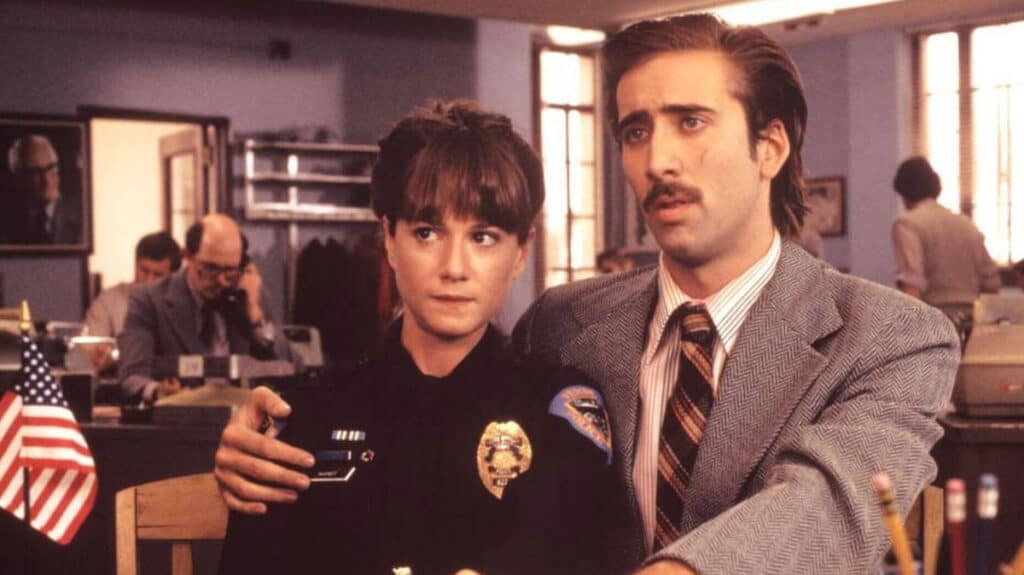
The Coens took inspiration from the works of the American playwright, screenwriter, and director Preston Sturges, whose directorial efforts include films like The Lady Eve, Sullivan’s Travels, The Miracle of Morgan’s Creek, Unfaithfully Yours, and more. Dabbling primarily in romantic comedies, musicals, and drama, the Coens adore Sturges’s versatility and ability to convey allure at a prudish time in Hollywood’s history. The Coens also cite the American writers of novels, short stories, and essays, William Faulkner and Flannery O’Connor, as fuel for their creative fire. Both writers excelled at bringing a unique Southern charm to their stories, with O’Connor displaying a particular talent for questioning Catholicism-defined morality and ethics. This theme would follow the Coens in other films, such as The Big Lebowski and O Brother, Where Art Thou?
Filming for Raising Arizona lasted ten weeks, with The Addams Family, Get Shorty, and Men in Black director Barry Sonnenfeld as the project’s cinematographer. Rustling up actors to bring the film’s colorful cast was easy enough, though the Coens encountered snags while working alongside two of the film’s stars, Nicolas Cage and Leonard Smalls. Excited about collaborating with the Coens, Cage routinely offered suggestions about the script and tried to improvise when he felt inspired. The Coens waved Cage’s improvisations off like so many flies circling Nathan Arizona in the head office of his furniture store. While Cage lamented his loss of extemporizing, he respected the Coen’s vision and learned a thing or two about challenging filmmakers.
Randall “Tex” Cobb also managed to fuffle a few feathers. The Coens once described Cobb as “a force of nature,” saying they would hesitate to hire him again. Speaking with Business Insider, composer Carter Burwell offered insight into one of the low points of Cobb’s time on the Raising Arizona set.
“Cobb wasn’t an actor,” Burwell explained. “He’d shot his stuff, but there was still one or two scenes that they needed him for. His manager was a professional fighting manager. He said to the Coens, “If you really need him back, we should get twice as much money because you really can’t substitute anyone for him now, can you?” He didn’t represent any other actors, so he didn’t care about his reputation. They had to pay the money.”
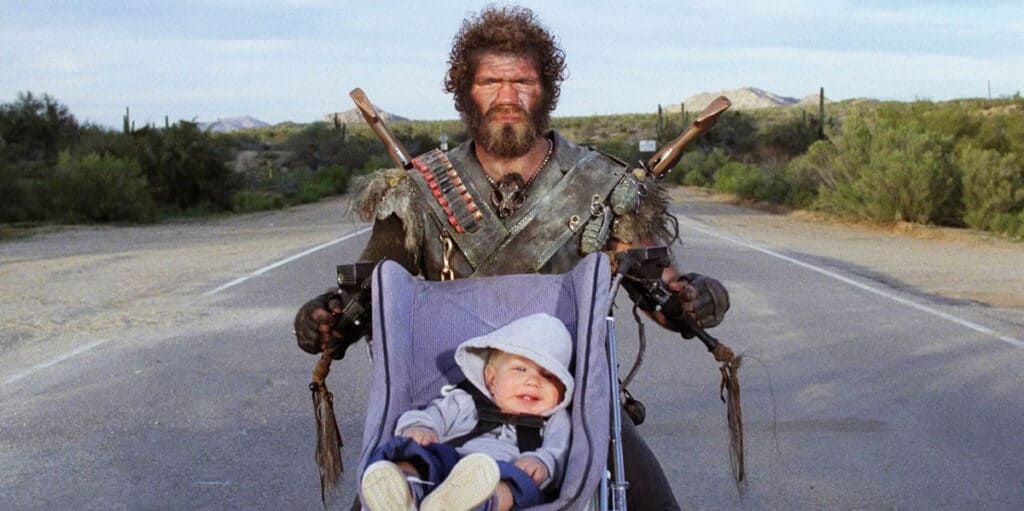
Who would have guessed extortion would be a part of Raising Arizona‘s history? Add the fact that Cobb didn’t know how to ride a motorcycle – which is integral to his character – and his inability to memorize his lines, and friend, you’ve got yourself a “pain in the ass” on set.
Interestingly, Kevin Costner and Richard Jenkins auditioned for the part of Hi, but failed to land the role, with Costner making three attempts to become a part of the project. Meanwhile, Kate Capshaw was offered the role of Edwina, but turned it down, a decision she would later regret.
As for Burwell, he composed the music for Raising Arizona by combining Southern sensibilities with Looney Tunes-inspired themes. A prime example of Burwell’s madcap approach to the soundtrack is the central theme, “Way Out There.” The song begins with a doom-tinged dirge before breaking into a jaunty banjo diddy. As the track intensifies with whistles and yodels, you can practically feel the rays of a rising Arizona sun coming over the horizon.
Raising Arizona banked $29.1 million worldwide on a reported budget of $5.5 million. A moderate success, mixed reviews followed the film like a paranoid parent chasing after a newly-waddling toddler. Considering fan affinity for Raising Arizona today, you’d assume everyone enjoyed the Coen’s wiley jaunt into the Copper State. However, the film inspired public outrage in the people it represents, Arizonans. Citizens of the Grand Canyon State felt insulted by the Coen brothers’ film, saying it portrayed them as dim-witted and boorish. Even the Mayor of Scottsdale, Arizona, Herb Drinkwater, criticized the film, saying it had “no redeeming social value.”
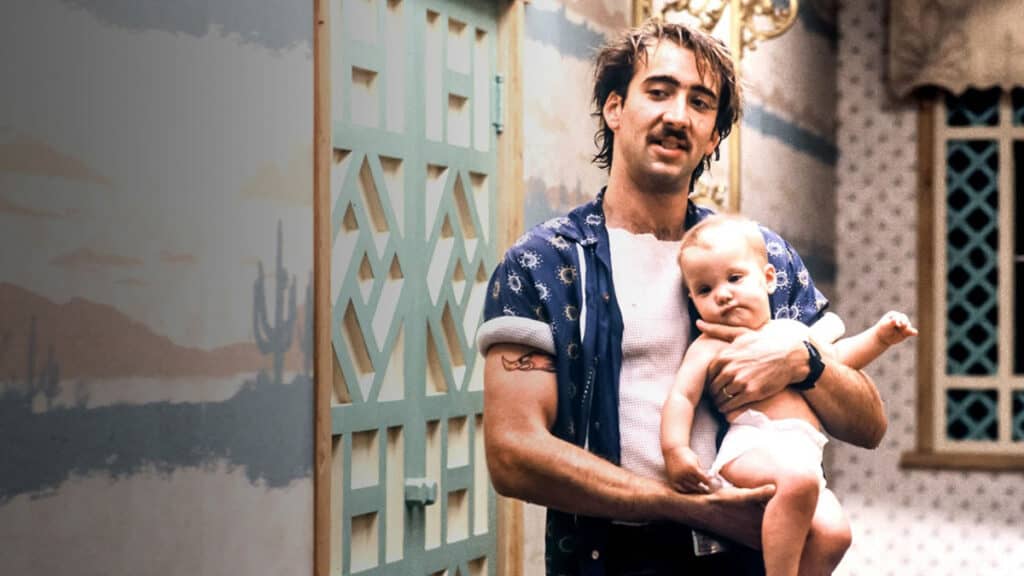
While Raising Arizona has its share of haters, I do not count myself among them. I had a blast revisiting the film for this script, and I still regard it as one of my Top 5 Coen Brothers films. Cage and Hunter’s comedic chemistry is off-the-charts, with Goodman and Forsythe elevating the film with their brotherly hijinks. If you listen closely, you’ll hear dialogue from Raising Arizona woven into my everyday vocabulary, including the line “The government do take a bite, don’t she,” whenever I see the powers that be going vampire on our housing costs and paychecks.
Raising Arizona is an early example of the Coen’s talent for crafting darling delinquents and clever yet cartoonish comedy. It is challenging to imagine the Coen Brothers’ filmography without this experimental gem and consider its influence on filmmakers for years to come. While films like Fargo, No Country for Old Men, and True Grit shine like diamonds in the Coens’ ornate crown of classics, it’s important to remember the duo’s salad days and how taking a risk resulted in one of their most beloved films.


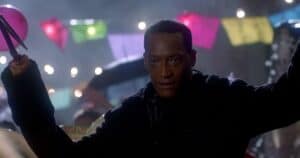







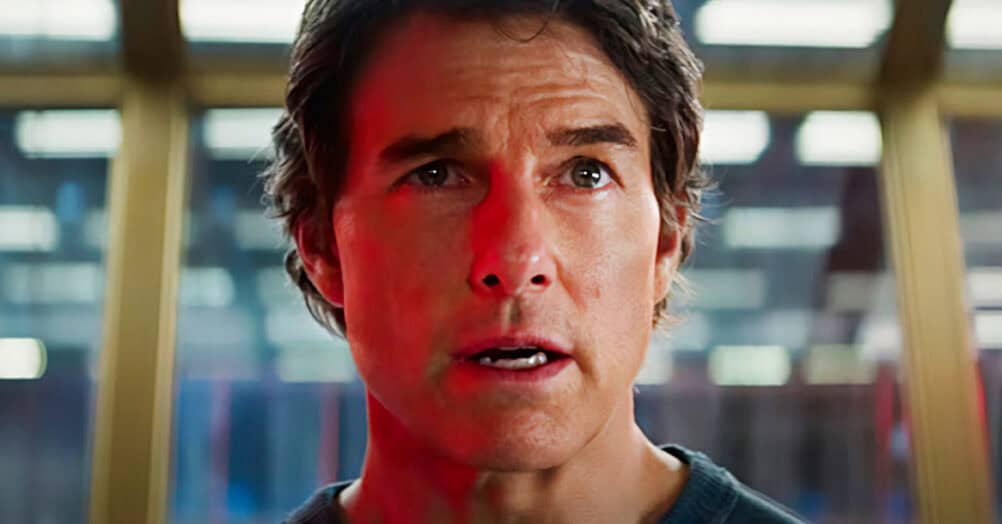


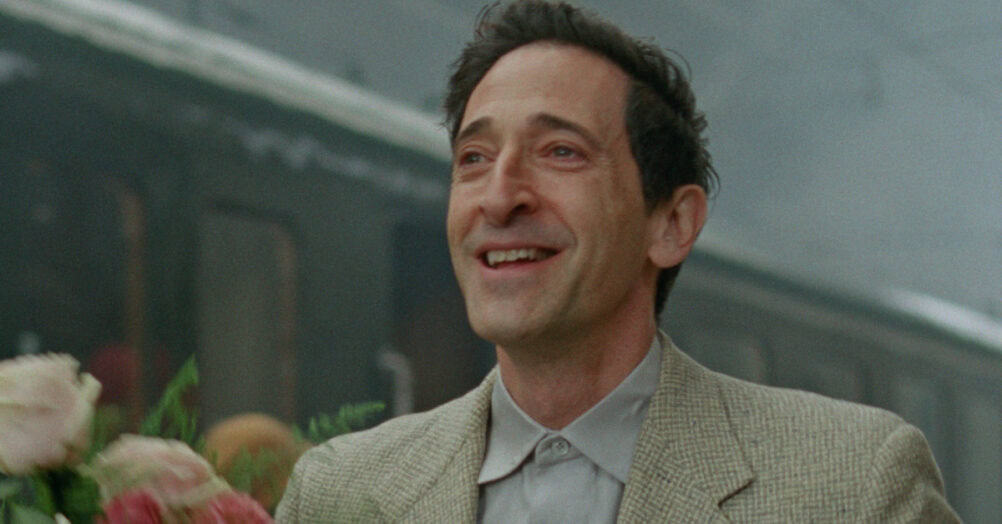


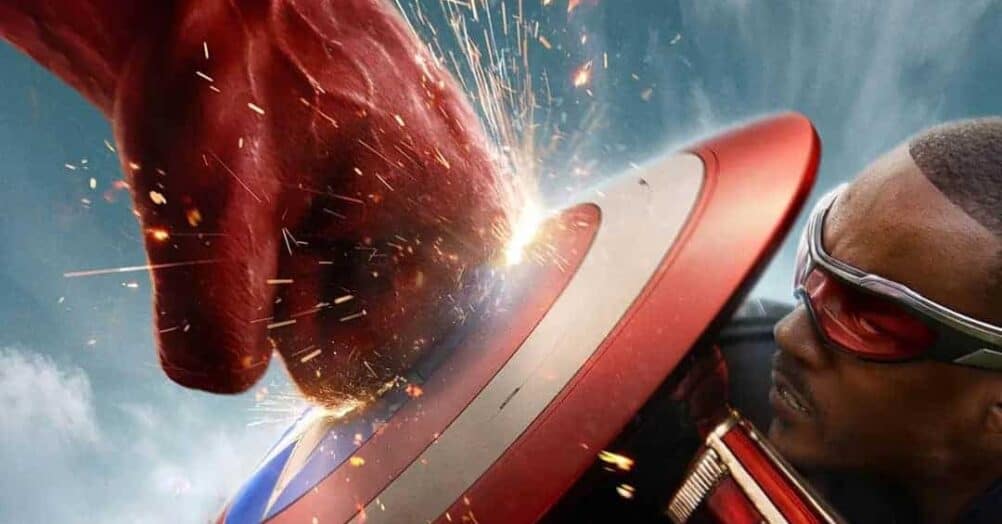



Follow the JOBLO MOVIE NETWORK
Follow us on YOUTUBE
Follow ARROW IN THE HEAD
Follow AITH on YOUTUBE